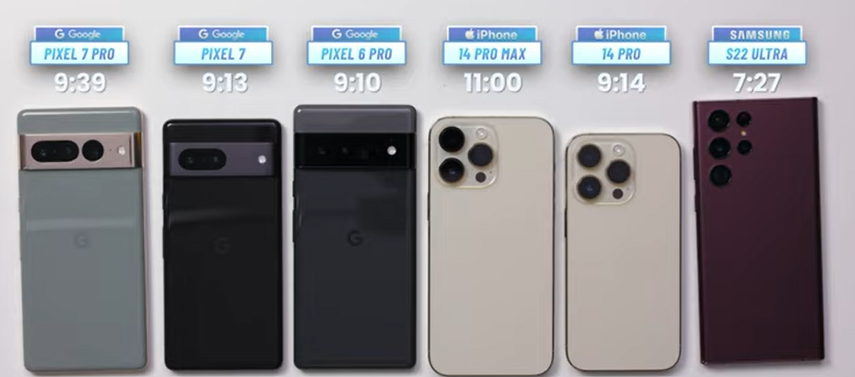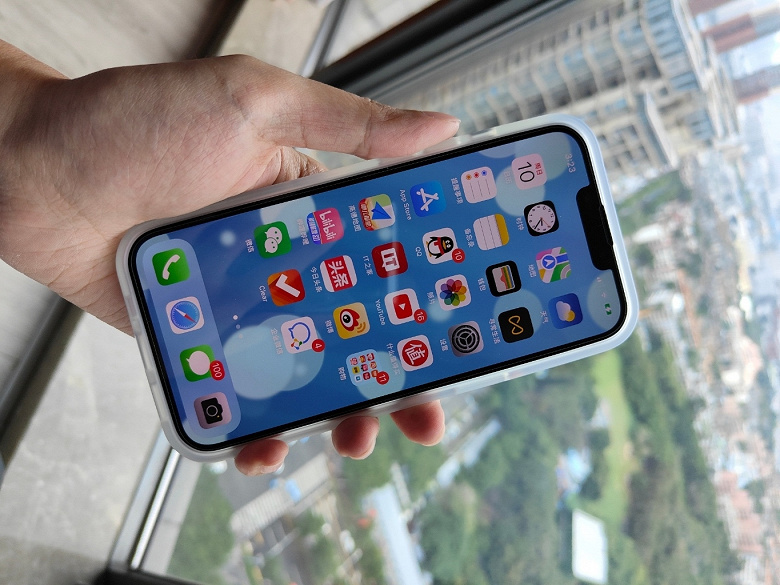
Apple has unveiled the iPhone 11, iPhone 11 Pro and iPhone 11 Pro Max. All three devices offer a standard 12MP camera plus, for the first time on an iPhone, an ultra-wide 13mm camera module.
In addition to those two cameras, the Pro models also provide a 12MP telephoto camera. The iPhone 11 provides a 6. 1" 326ppi LCD 'XDR' display, with the 11 Pro and Pro Max offering 458ppi OLED HDR displays measuring 5. 8" and 6. 5" respectively. All three displays support P3 wide color gamut and display of HDR video content.
All three phones offer a main 12MP 'wide' camera with a 26mm equivalent F1. 8 6-element lens and optical image stabilization. It's a new sensor, and Apple claims it offers '100% focus pixels', which suggests a dual pixel sensor with split photodiodes.
The iPhone 11, 11 Pro and 11 Max all offer a second 12MP 'ultra wide' camera with a 13mm equivalent F2. 4 5-element lens, which provides a dramatic wide 120 degree field of view. A new feature uses the ultra-wide camera to show you what's beyond the frame when using the main camera, helping you decide whether to switch to the wider field of view. Portrait mode is now available with the wider 26mm field of view, since a depth map can be generated using the main and ultra-wide cameras, and portrait relighting brings a new 'High-Key Light Mono' for high contrast black-and-white portraits that mimic studio lighting.
The 11 Pro and 11 Pro Max continue to offer the telephoto camera of previous generations. This is also a 12MP sensor paired with a faster F2. 0 lens with optical image stabilization.
A new 'Night mode' turns on automatically in dim conditions and uses 'adaptive bracketing' to capture and fuse multiple exposures. Varying shutter speeds can be used to capture both short and long exposures, helping reduce blur with moving subjects. A new 'Deep Fusion' mode, coming this fall, captures up to 9 frames and fuses them into a higher resolution 24MP image. Four short and four secondary frames are constantly buffered to ensure short shutter lag, and one long exposure is taken after the shutter press. These are then intelligently combined, presumably using a super-resolution technique with tile-based alignment, to produce a blur and ghosting-free high resolution image.
The front facing 'TrueDepth' camera on all three iPhones have been upgraded, now with a 12MP sensor. It takes 7MP selfies in portrait orientation, but automatically switches to a wider field of view with 12MP capture when you rotate the phone to landscape orientation. Also new is the ability to record slow-motion selfie video clips at up to 120 fps.
Official Apple iPhone 11 Pro sample images
$(document). ready(function() { SampleGalleryV2({"containerId":"embeddedSampleGallery_1843168955","galleryId":"1843168955","isEmbeddedWidget":true,"selectedImageIndex":0,"isMobile":false}) });
All three iPhones have upgraded video capability, with the rear cameras capable of 4K 60p footage with what Apple is calling 'extended dynamic range' (EDR). Optical and digital stabilization work in combination for smooth footage. The front facing camera can record 4K 60p video, and can also record EDR video at 4K 30p. It's now easier to switch from shooting photos to shooting videos: in stills mode, simply hold down the shutter to start recording a video.
Like previous models, slow motion and time-lapse modes are available. Apple claims the Pro models have all three rear cameras calibrated at the factory, so you can quickly switch between lenses when recording video and retain the same look across all cameras.
The Pro models sport high contrast (2,000,000:1) OLED displays capable of 800 nits brightness for easy viewing in sunny conditions, and up to 1200 nits brightness for HDR photo and video display. The iPhone 11 IPS LCD display has a lower 1400:1 contrast ratio and a maximum brightness of 625 nits. All three displays support P3 wide color gamut and display of Dolby Vision and HDR10 video content.
The iPhone 11, 11 Pro and 11 Pro Max will be available for pre-order this Friday and will ship September 20th. The iPhone 11 is the most affordable of the bunch starting at $699; the 11 Pro and Pro Max are priced at $999 and $1099, respectively. Apple says it will keep the XR in the current lineup for $599.
. dpreview.com2019-9-11 22:00





















